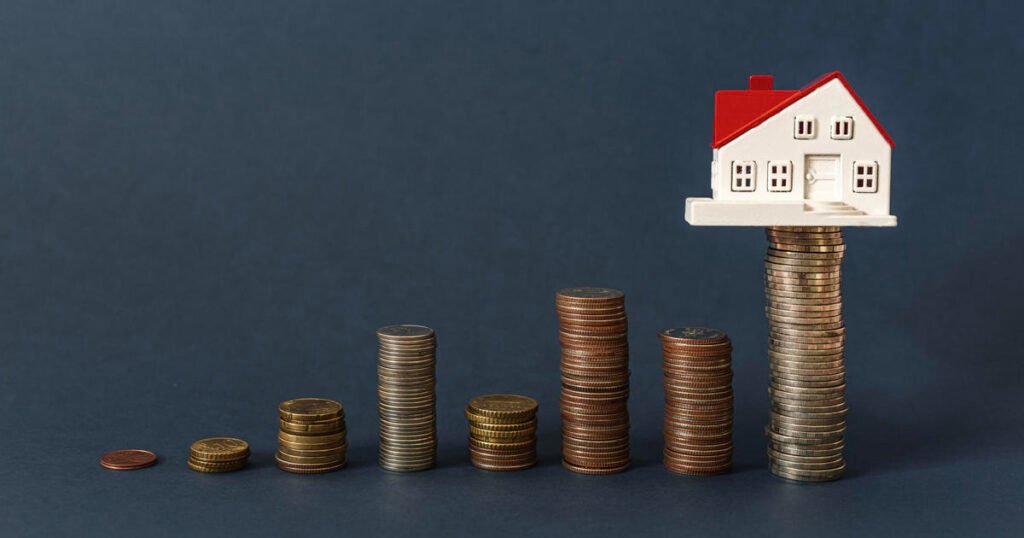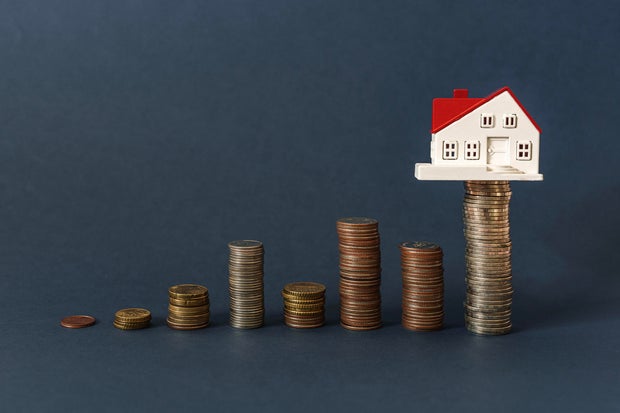Getty Images
Mortgage interest rates have increased so much over the last few years that it has both buyers and sellers worried. “The impact of the higher cost of homeownership has been a notable drop in home buyer demand,” says Dr. Selma Hepp, a chief economist at CoreLogic. “At the same time, higher mortgage rates have disincentivized some potential sellers to sell as they have been unwilling to give up their relatively lower rate and lower mortgage payment.”
While the demand for for-sale homes is still high, higher interest rates have slowed down the homebuying craze that occurred during the pandemic. After all, it’s not easy for potential sellers to list their homes for sale and buy something else if it means paying a higher interest rate than what they were before. And, that trend is having an impact on the market — and homebuyers.
“The combination of slower demand and low supply has reduced home sales activity to the lowest levels since the Great Financial Crisis,” Hepp says. “The typical mortgage payment has increased by over 60% since mortgage rates started increasing in mid-2022.”
But while high mortgage rates have been slowing things down, at least slightly, in recent months, what do experts think could happen this summer with mortgage rates — and, in return, the selling market? Here’s what you should know.
Find out the mortgage rates you could qualify for today.
Mortgage interest rate forecast for summer 2024: Everything experts predict
If you’re keeping an eye on this unusual mortgage rate environment, here’s what experts think could happen this summer.
Rock-bottom rates are a thing of the past
In 2021, we saw mortgage interest rates between 2% and 3% — some of the lowest rates we’ve ever had on record. Even now, mortgage rates hover around 7% for a 30-year conventional mortgage loan. While this isn’t as high as it was last October when rates climbed to almost 8%, rates are still two to three times what they were during 2020 to 2022.
Hepp doesn’t expect mortgage rates to drop that low again anytime soon.
“Three percent for a mortgage is a distant memory,” Hepp says. “It’s doubtful we will see rates that low, barring some major, adverse economic event, such as a recession, which is not expected in the near term.”
Tai Christensen, president of Arrive Home, agrees that 3% mortgage rates aren’t coming back.
“Mortgage rates could eventually drop back down to 3%,” Christensen says. “However, I doubt it will be in our lifetime, and if so, it will not be in the foreseeable future.”
Compare today’s best mortgage rates and get pre-approved for a home loan now.
Summer sizzles or summer fizzles
While spring and summer months tend to be hot for homebuying, higher interest rates could be a hindrance this summer.
“Historically, the spring and summer seasons are the most popular times to purchase homes due to favorable weather conditions and families being settled in their new property prior to the school year starting in the fall,” Christensen says. “However, since these seasons are most popular, buyers may experience increased competition and potentially higher prices.”
The average sale prices of homes sold for the first quarter of 2024 was $513,100, according to the Federal Reserve Bank of St. Louis. And, between the higher mortgage interest rates and higher home prices, there could be less incentive for people to buy.
“High mortgage rates have cooled the housing market,” Hepp says. “While it is not considered hot, there continue to be more buyers than the number of existing homes available for sale, which drives home prices higher.”
Should you buy a home now or wait?
With rates more than double what they were just a couple of years ago, many would-be homebuyers are waiting to take out mortgages right now. But that doesn’t mean you should wait, especially if you’re prepared with the funds, credit score and ideal location for buying a home.
“Mortgage rates are expected to start moving lower by the end of this year,” Hepp says. “However, this is largely dependent on overall inflation and whether the Fed gains confidence in the [persistence] of disinflation. In that case, the Fed would lower the federal funds rate, which would help bring mortgage rates lower as well.”
Buying now might be the right choice if:
- You have a large chunk in a down payment. If it’s 20% or more, you can avoid paying private mortgage insurance.
- You have excellent credit and have shopped around with lenders to get the lowest interest rate available.
- You plan on staying in your home for a while.
- You’re willing to consider a 15-year mortgage, which tends to have lower interest rates than 30-year loans.
- You plan on refinancing your home when rates drop to take advantage of the dip.
The bottom line
Ultimately, buying now isn’t required and for some potential buyers, now isn’t the right time. If you can hold off for a while, you may be able to get a lower mortgage rate and have less competition — but it all depends on what happens with the economic conditions in the future.
“Purchasing during less popular times, like fall or winter, could increase a buyer’s ability to negotiate more favorable terms,” Christensen says.
If you choose to buy now, though, there may be benefits to doing so. And, you aren’t stuck with today’s high mortgage rates forever. You have the option to refinance in the future if rates decline, so if you find the perfect home and are able to make your move now, it may be worth snagging your dream home instead of missing out.


